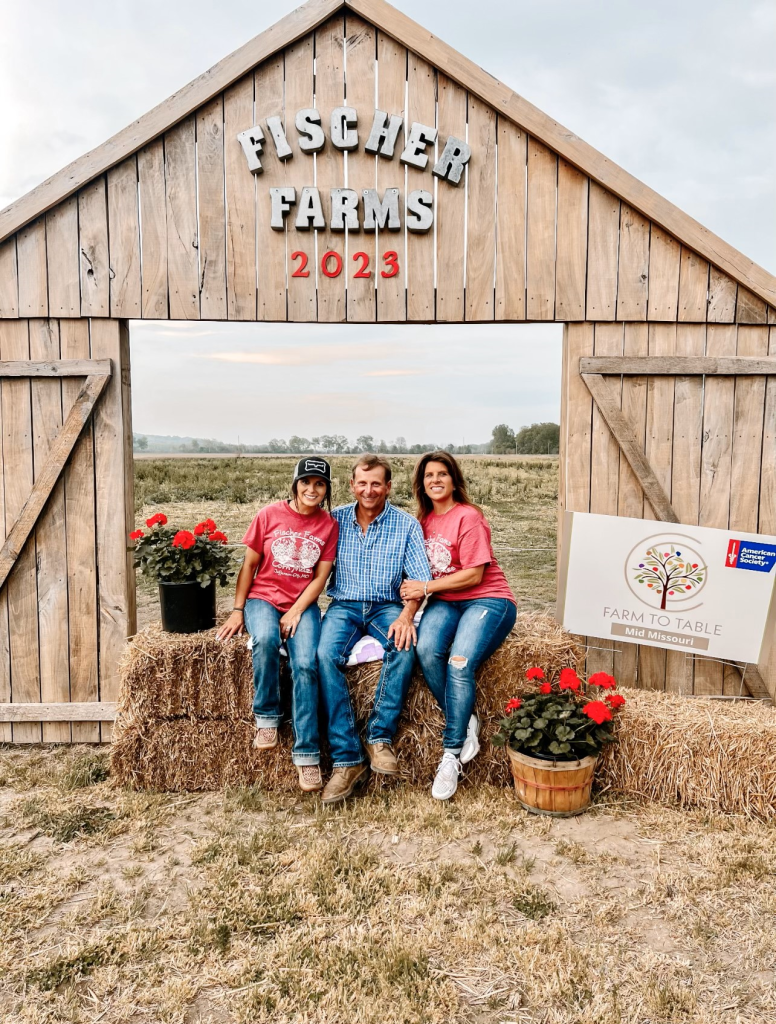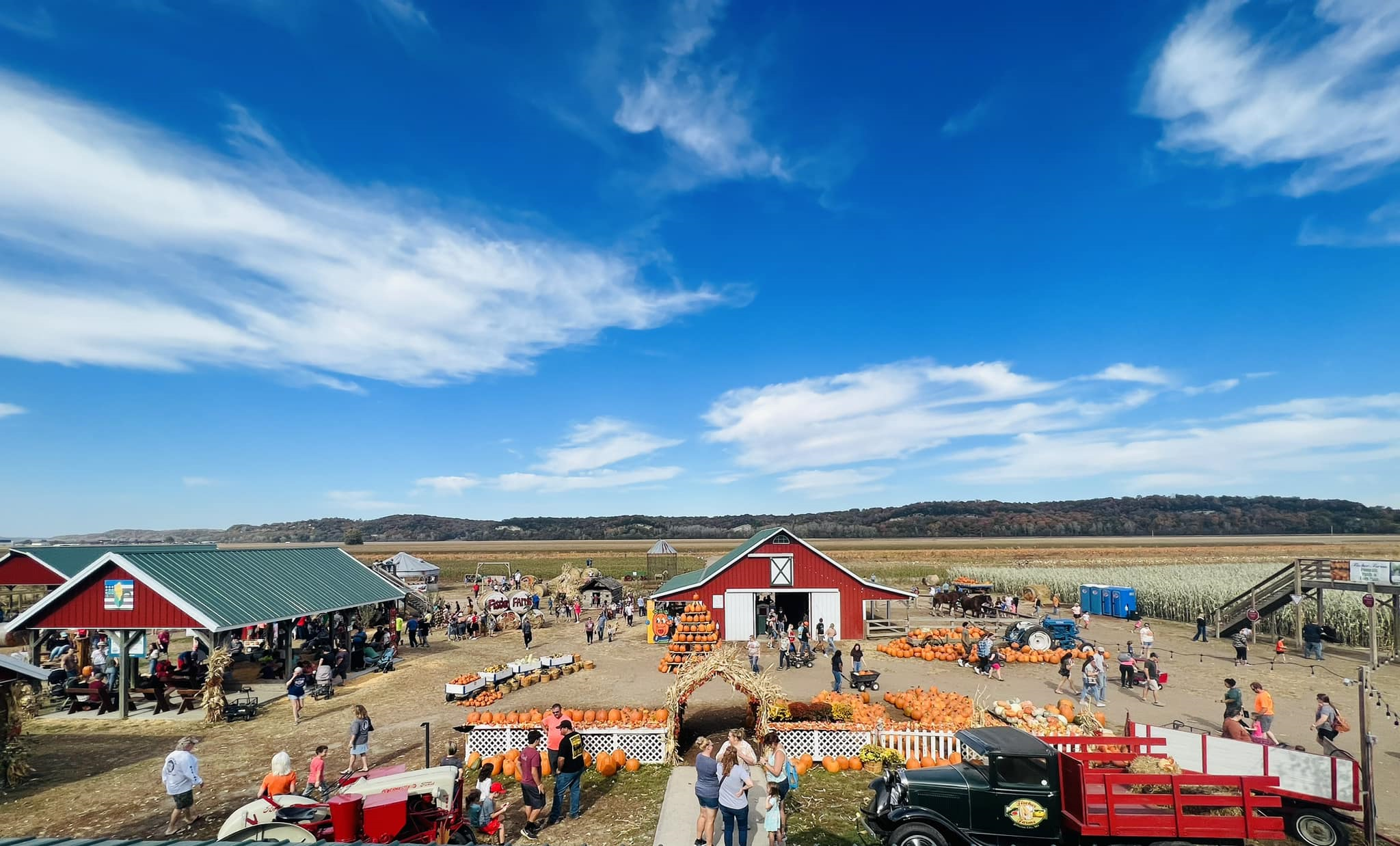For the Fischers of Jefferson City, Missouri, their direct-to-customer farm business started with pumpkins. Jay Fischer and his wife, Kim, have a farm in Missouri River bottomland, within the city limits of Jefferson City, Missouri, growing corn and beans, as well as watermelons and pumpkins.
But in 1997, “Corn and bean prices were depressed,” Jay Fischer said. “I’d been raising pumpkins with my grandpa since I was about 9 years old. I was delivering them wholesale from our 20 acres to grocery stores and markets. We were doing OK with those pumpkin sales.”
When their daughter, Jena, was born, Kim wanted to stay home while contributing to the family income. She put an old wagon out front selling pumpkins directly to visitors. It included an “honesty box”—an old tackle box with the top cut off, chained to the wagon —where visitors could leave payment after reading the list of prices.
“People around here are pretty honest,” Jay Fischer said. “If anyone ever stole from us, we never knew about it.”
Visitors kept asking to visit the pumpkin patch. Each year, the pumpkins got more and more popular as word spread. Customers bought them mainly for Halloween and fall decorations. They also brought their young children, who enjoyed the process of picking out the pumpkins and visiting the farm animals. The operation “kept evolving,” Fischer said.
Today, Fischer Farms Pumpkin Patch & Corn Maze is a destination for thousands of families from all over the state. Its attractions include a 10-acre corn maze with a design that changes every year, Clydesdale horses, pigs, calves, turkeys, chickens, horses, hayrides, fresh produce in season, a more than 40-acre pumpkin patch, squash, gourds, straw, mums and corn stalks. There’s a “photo op chair” where families can take pictures. Products for sale include watermelons, cantaloupe and sunflowers, as well as jams, jellies, honey from the farm’s beehives and popcorn. There are two greenhouses where tomatoes are grown.
“If it’s not something we make or grow ourselves, all products come from within a hundred miles,” Fischer said.
“Fall is the busiest season,” he added. “My wife says she doesn’t sleep for seven weeks.” Kim organizes school trips during the year, for a total of about 6,000 kids a year, and handles all the business paperwork of the operation. Jena Fischer, who has a degree in early childhood curriculum studies, helps with the tours and exhibits. There’s a “corn box” where kids can play in dried corn kernels, surrounded by facts about what is made with corn and where it is exported. Jena also helps with the produce and marketing.
For Jay, the educational aspect is one of the most rewarding parts of the operation. He has served for 15 years as a member of the Missouri Corn Growers Association and is also corn sector director for the United States Grains Council. When he spoke with High Plains Journal, he was getting ready to go to the Missouri State Fair with other board members to represent Missouri corn growers.
“All I ever wanted to do from the time I was a kid was to farm,” he said. “I realize it’s not for everyone, and not everyone can buy farmland and start.”
He’s proud that some of the teenagers who have worked for him at Fischer Farms over the years have chosen careers in agriculture.
“One young man who started work here at 14 is 29, and he inspects grain elevators for the Missouri Department of Agriculture in the state. Another who started with us at 14 is 27 now, and he helps out with the row crops and the pumpkin patch in the fall.”
The Fischers continue to grow corn and beans, as well as alfalfa. Their latest project, though, is a permanent farmers’ market, for which the concrete is already poured. “We’re looking for tenants,” he said. “We are interested in any locally grown produce—okra, home-grown chickens, meat snacks, whatever.” Tenants will either pay a fee or contribute a percentage of what they sell to the market.
Fischer credits their location for a lot of the operation’s success. “We are no more than 5 or 10 minutes from anywhere in Jeff City,” he said. But his visitors come from all over the state now.
“We’re getting them from St. Charles County (outside St. Louis).”

Some families return year after year, and some start out with a visit to Fischer Farms and continue on to wineries in nearby Hermann, Missouri.
The reason farmland is located in the city limits, Fischer said, is that it’s Missouri River bottomland. In the flood year of 2019, his whole property flooded. The house itself was raised, but all the crops and the pumpkin patch were flooded out. “We planted pumpkins again on July 18 and saved a crop,” he said. “We had sunflowers and the corn maze that year.”
The direct-to-consumer operation is so successful that Jay quit wholesaling produce five years ago, although he continues to grow corn and beans.
“Honestly, we’ve been so blessed. I never would have believed that there would be this demand,” he said. “People really want to know where their food comes from. And if we can educate some people about farming along the way, that’s extra.”
David Murray can be reached at [email protected].




